Earlier this month, I was invited to participate in a podcast recording with one of my good colleagues, Jim Donnely. Jim is the host of the Intelligence Career Conversations. This podcast explores various aspects of intelligence and national security careers, including insights from experienced professionals, advice on career paths and educational requirements, and discussions on current trends and challenges, including talent acquisition and retention. In this blog, I am sharing a link to the podcast for anyone who wants to hear it. I am also providing the text of our conversation, which includes several leadership lessons and professional advice. We covered a lot during the interview, so I am including part 1 in this blog. Part 2 will come later. I hope you enjoy this special edition of All The Leadership!
My career summary in a few sentences
Jim started the episode with a short introduction.
Welcome to the ICC podcast. I am your host, Jim Donnely. Today, I want to welcome Doug Keating to the podcast. Doug is Vice President of business development for the national security technology company Vibrint. After graduating from the University of Virginia, Doug served as an Army Officer in numerous leadership positions for over a decade before transitioning into the private sector in 2001. He worked at several great companies supporting the Intelligence Community for the past two decades, including Accenture, Booz Allen Hamilton, and Microsoft, as a technology leader before joining Vibrint. Five years ago, Doug founded All The Way Leadership!, which focuses on training the next generation of leaders to make the world a better place.
Next, we discussed a series of questions about my career. Below are Jim’s questions and my responses, with some slight editing.
Q1. How did you get started in the Intelligence/National Security space?
I am happy to share my story about joining the Intelligence Community. Let’s go back a few decades. My last day in the military was 1 Sep 2001. As we all know, shortly thereafter, the unthinkable happened. Our country was viciously attacked by terrorists on 9/11, a day we will never forget. I knew returning to the military would be difficult, especially since I had just moved my family with two young sons to the NOVA region. Instead, I decided that I would serve the nation through private industry. A few years later, Bill Webner, my boss at Booz Allen, offered me an opportunity to become highly cleared and support the Intelligence Community. I said hell yes, count me in, and have been a member of the IC since then. It is hard to believe it has been two decades.
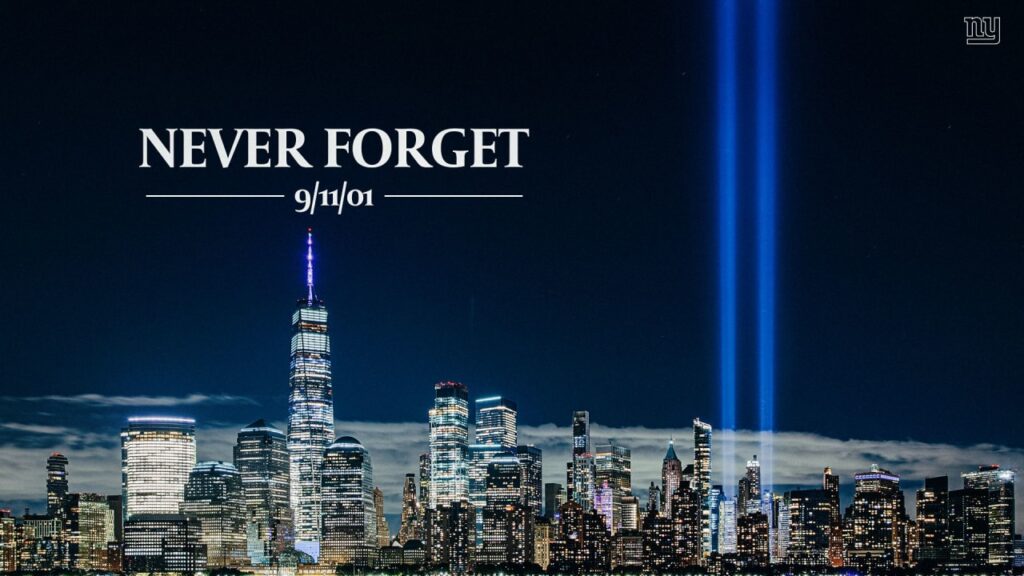
Q2. Tell us about your current role.
I am a Vice President of Business Development and Growth for Vibrint. Since I doubt many of your listeners have heard of Vibrint before, let me give a two-sentence description of the company since we are relatively new. Vibrint helps sustain the mission advantage of the national security community. We uniquely combine two proven technology firms integrating products and services to support the national security mission.

Q3. What excites you most about this organization?
I am inspired by the vision our CEO, Tom Lash, has for Vibrint. We want to be the next great national security company, and we will be. It is a great place to work. We help advance the IC mission in novel and impactful ways. As a technology leader, I am pleased that Vibrint is developing solutions for the IC using advanced commercial technologies like high-performance computing, AI, quantum computing, and LiFi. Check out our website to learn more at www.vibrint.com.
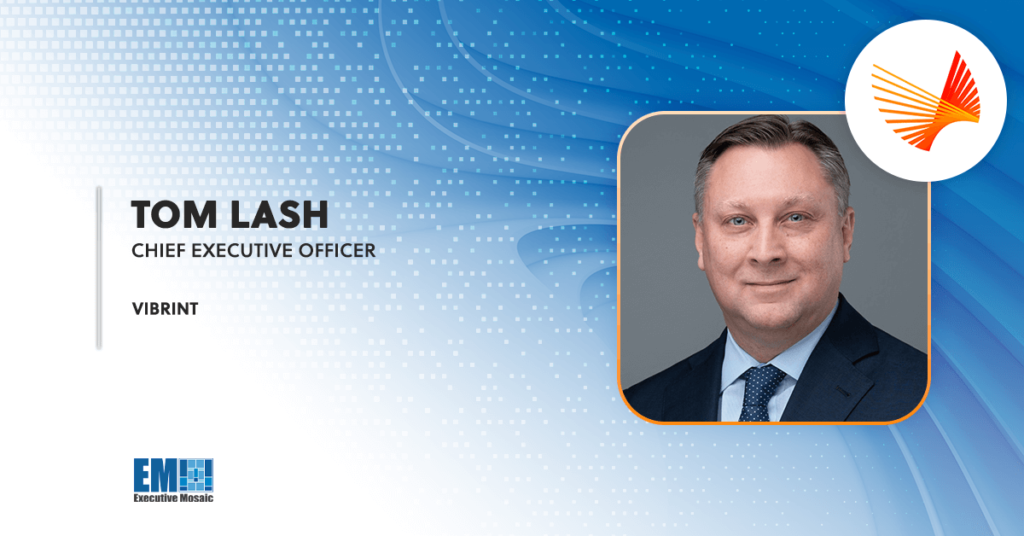
Q4. What professional experiences led you to your current position?
At Vibrint, we are focused on delivering solutions that may include both products and services. We send a trend in the government. More customers are using commercial technology. I have over a decade of experience in the government services sector with Booz Allen and, more recently, spent several years at MSFT, one of the world’s leading technology product companies. Those experiences and my military background serve me well in my current role.

Q5. How did your education/degree impact your career trajectory?
At the end of my military career, I pursued a master’s degree in management information systems while serving as an Army ROTC instructor at my alma mater, UVA. This degree is designed to train future technology leaders, and it was the perfect academic preparation for launching me into the private sector. Over the past two decades, I’ve worked with several Chief Information Officers (CIOs) and other technology leaders across the IC on many transformational technologies, such as cloud computing, big data, and cybersecurity.
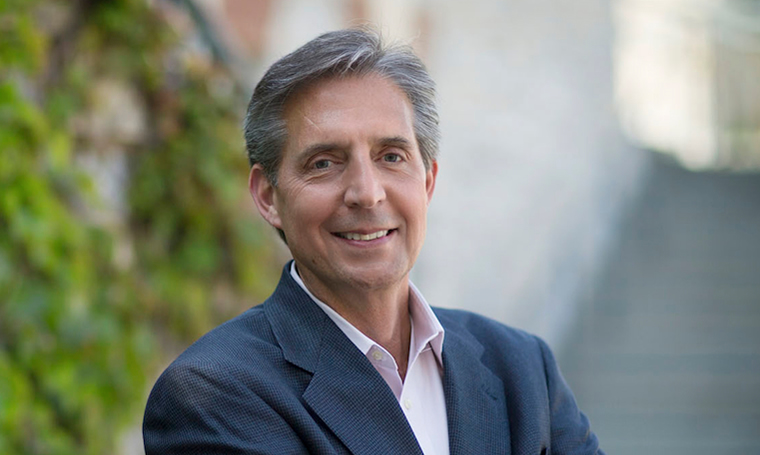
Q6. What would you advise students and early-to-mid careerists considering advanced degrees or certifications?
Certifications are a no-brainer. If you need them, get them. Any investment you make in growing your expertise is a wise choice. I would encourage anyone who wants to become a senior leader to pursue an advanced degree. In my case, having an advanced degree accelerated my career progression.
Regarding advice, I recommend that you don’t wait until you are old like me. Obtaining an advanced degree takes a lot of time and energy. It can be grueling. It helps to be young, primarily if you work full-time and have a family like I did when I completed my master’s degree. I was an Army Captain in my early 30s when I received my MS in MIS from UVA. I cannot imagine pursuing a Master’s degree at this point in my career. It would take more than I have to give at this point.
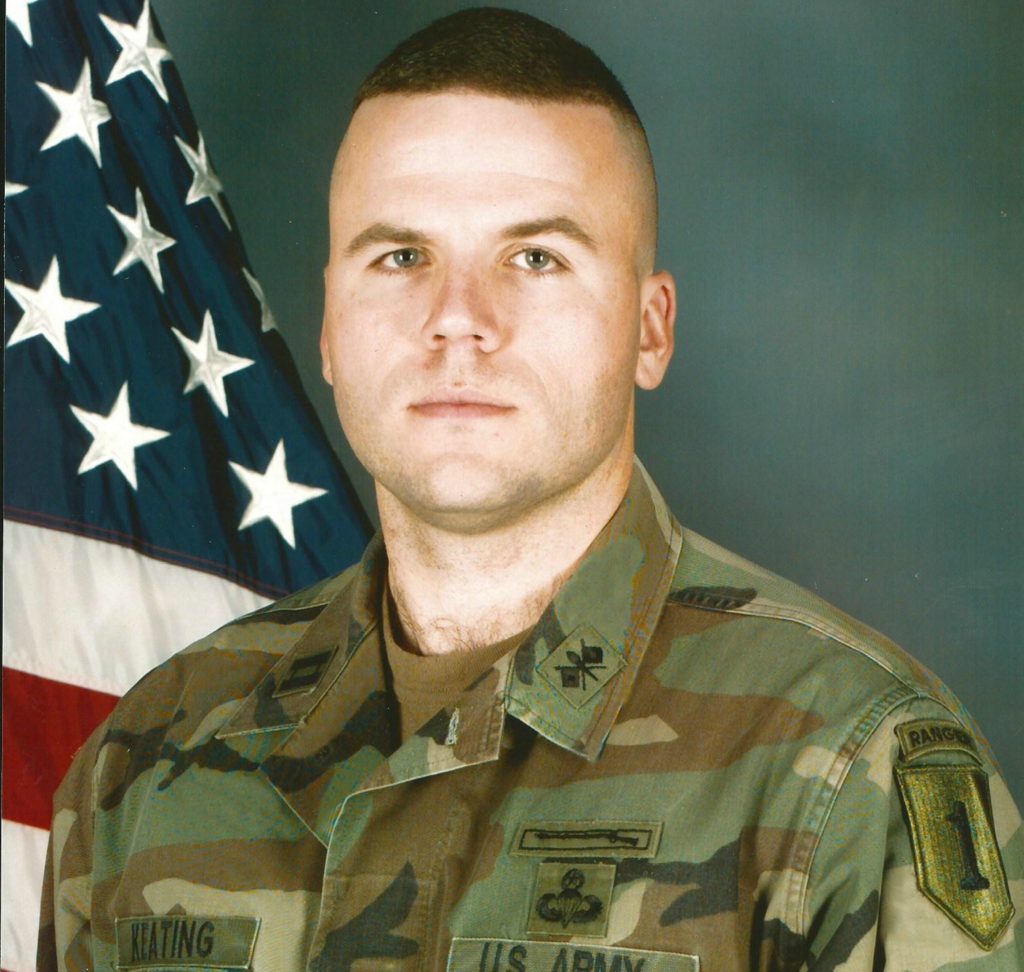
Q7. How did your time in the Army prepare you for your civilian career?
I truly enjoyed my time in the Army. It was an honor and privilege to serve in our military. I learned a lot about the world and leadership as an Army officer. My worldview expanded greatly when I lived in Europe, deployed to Bosnia multiple times, and spent time in Ukraine in the mid-1990s. Both Bosnia and Ukraine were eye-opening experiences for me.
Also, the Army did an excellent job developing my leadership skills. I was fortunate early in my career. My first duty assignment was in the 82d Airborne Division. As a young officer, I was surrounded by phenomenal leaders for four years. The best practices I learned from those leaders have paid huge dividends. One of the reasons I created All The Way Leadership! was to pass along what I learned since many companies do not have mature leadership training programs for their employees—especially small companies, which are usually limited due to resource constraints.
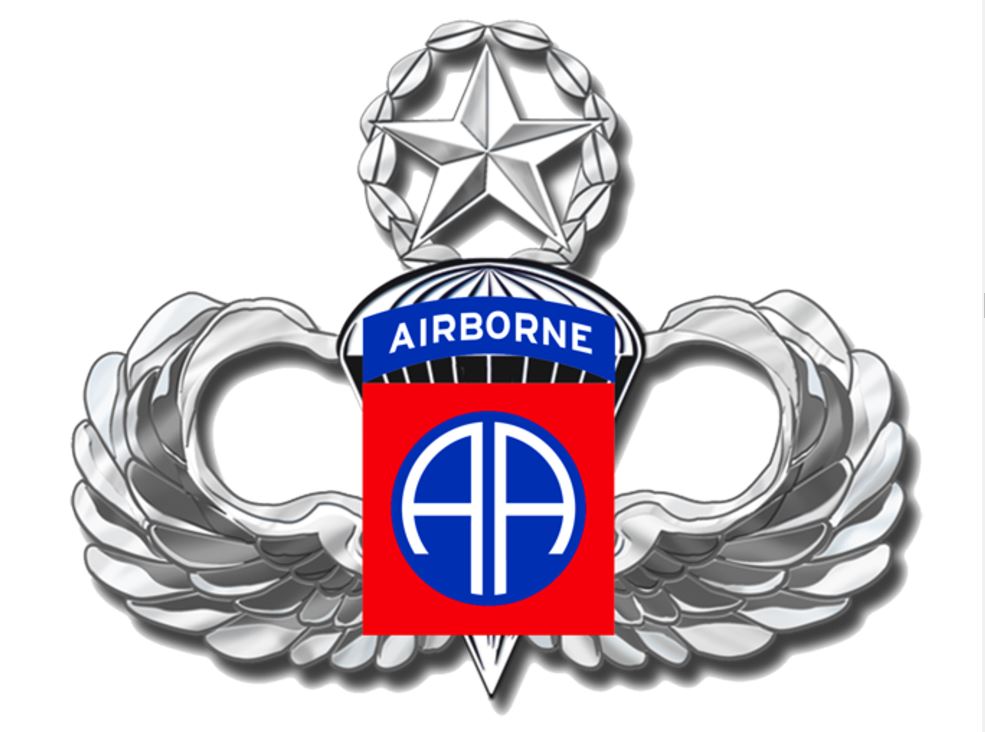
Q8. What do you wish you would have known before transitioning from the military to the civilian world?
My transition went well. I decided to leave the Army after a decade rather than stay for 20 or more years and retire. I took a risk when I placed a big bet on myself by paying for my advanced degree and taking on a large student loan. A few family members and mentors thought it was a bad idea at the time and advised me to stay in the military until I could retire. I am glad I did not listen to them. It has paid off. I learned from that experience that the best bet you can make is on yourself.

Q9. What do you find rewarding about contributing to the mission of the IC from the private sector?
The IC’s mission is to keep America and its citizens safe in ways other parts of the government cannot. I find it rewarding to support a mission that will ensure our nation thrives and that something like 9/11 never happens again. It is a noble cause. I am a proud member of the IC and plan to stay for many more years.
Q10. How does contributing to the mission differ from Private to Public?
Some responsibilities are performed only by government staff. That is the way it should be. The private sector supports them. I have heard some people say that there is no difference between blue- and green-badged staff. I disagree. Yes- I get the point they are trying to make about collaboration and integration of the workforce. We all must work together to advance the mission. It is essential for success. However, there are differences between these two components of the IC workforce. If there weren’t, we would all wear the same color badge.
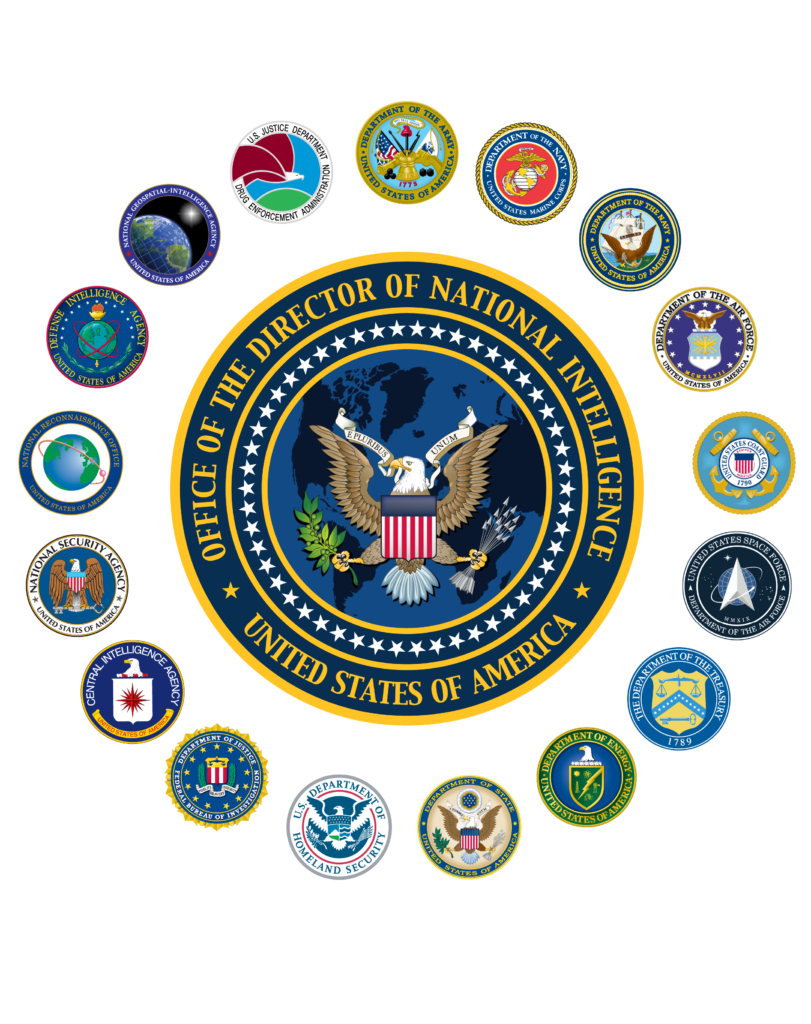
Q11. Can you talk about a career pivot point since you started your career in the private sector?
Yes – leaving Booz Allen for MSFT was a colossal career pivot for me. I enjoyed working at Booz Allen. The firm was full of great people, challenging work, and wonderful clients. I had spent over 15 years there. That’s longer than my Army career. It is hard to imagine leaving when you have worked somewhere that long. However, I noticed that my career was not progressing. Also, I had hit a significant milestone birthday, the big 50, and felt like the shot clock was running out. I reached out to a Senior Partner, Mike Thomas, for guidance. He gave me sage advice.
Mike told me the harsh reality that I needed to hear. Finding leadership roles as you grow older does not get easier; it gets harder. Mike recommended I take some time off to focus on my future direction. So that is what I did. I spent a wonderful week alone in Catalonia, Spain, exploring the region while mapping out my future. During that trip, I decided to leave Booz Allen. After I returned, Microsoft reached out about a role that was the perfect fit for my background. A funny thing happened after I left. Several Booz Allen staff reached out asking about my pivot. I passed along Mike’s advice. It is wise counsel.
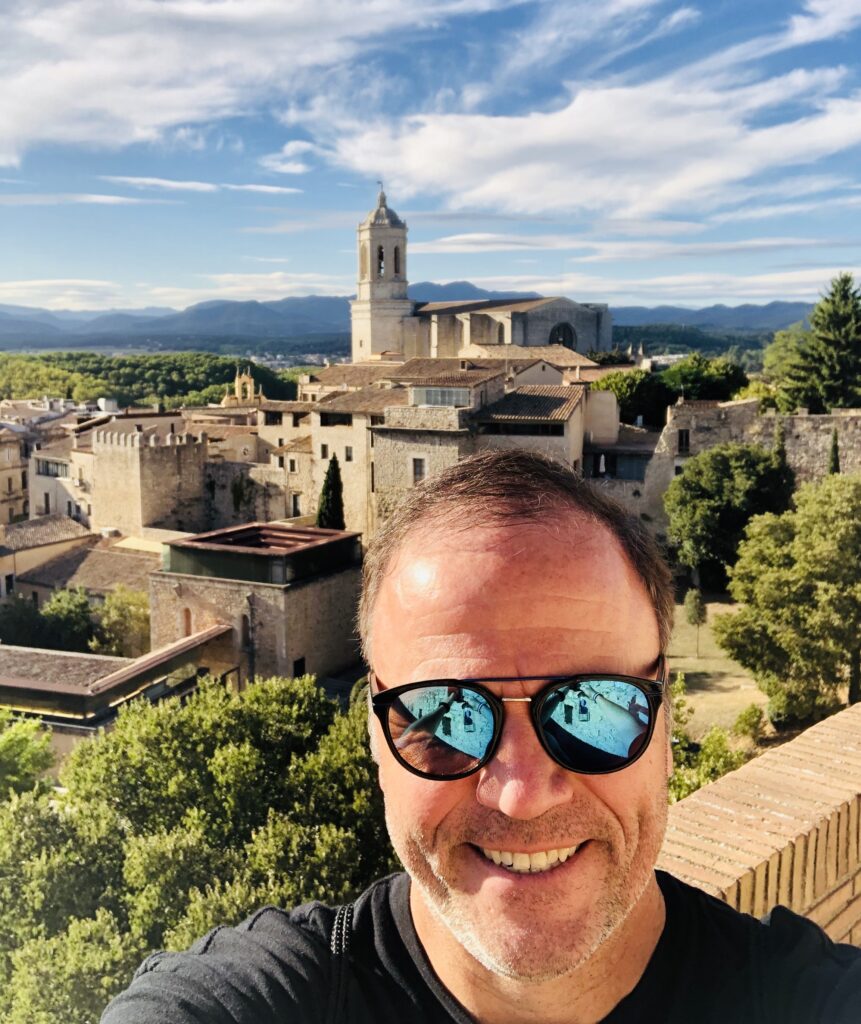
Q12. What would you advise them if you were talking to someone in college or just starting their career and wanting to pursue a career in your field?
I used to support the Booz Allen Summer Games Intern program, which was excellent. Every year, I spent time with aspiring college students, which was a tangible reminder that younger generations don’t think like me. I will offer a snippet of advice that I gave them here. First and foremost, become the best version of yourself that you can be. College is ideal for figuring yourself out. What is your personality, and what are your strengths and weaknesses? There are many tools available that can help, like the Big Five personality test or strengths finder assessment.
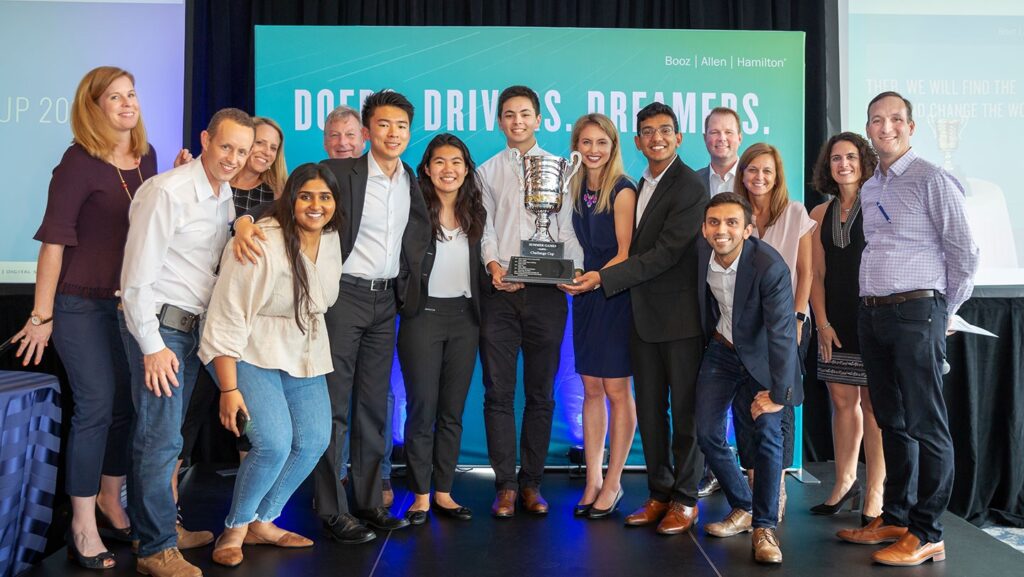
Q13. What disciplines or specialties do you believe will be in high demand soon?
I will put a slight twist on this question and talk about one emerging technology that will impact the IC in a big way—quantum computing. Our CEO, Tom Lash, is passionate about this topic. He recently wrote about it. He believes quantum computing is advancing faster than many realize, so we should prepare accordingly, especially regarding quantum-safe encryption and workforce skills. I agree and hope we don’t have the same growing pains the IC experienced with cloud computing. If you are an expert in quantum computing with a high-level clearance, I believe you will have a job for quite some time working in the IC.
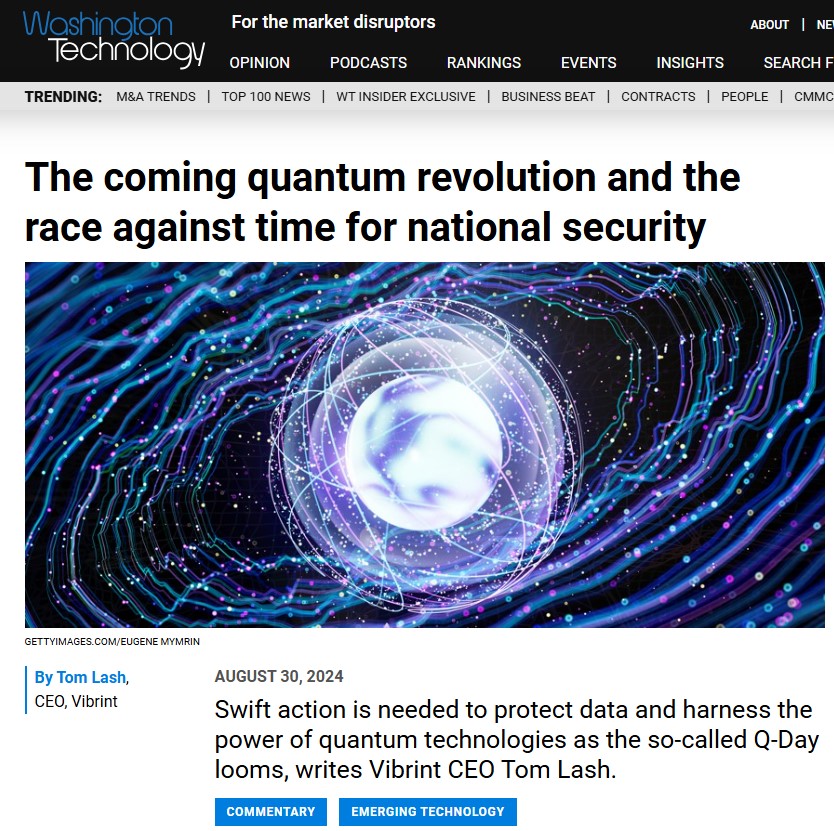
Q14. What is the best career advice you received?
Let me pass along some of the best career advice I received from one of my mentors, Gary Cubbage. I bet most of your listeners are high performers who want to grow, move ahead, and advance their careers. Let’s discuss a simple recipe for success working in the IC.
While at Booz Allen, I was selected to lead a struggling program. The team was about 50 people who worked full-time at an IC customer site. I went to Gary for advice on getting the program back on track. Gary said the best way to improve the program was to make the customer successful by doing the hard things required to solve their mission problems. Simple equation: do hard things + solve tough problems = mission success. So that is what we did. I worked with an awesome team of super-smart people to deliver mission success. We worked hard and loved it. Fast forward five years – the program tripled in size and was thriving. It sounds basic, almost too basic, but it works. Make your customer successful if you want to be successful.
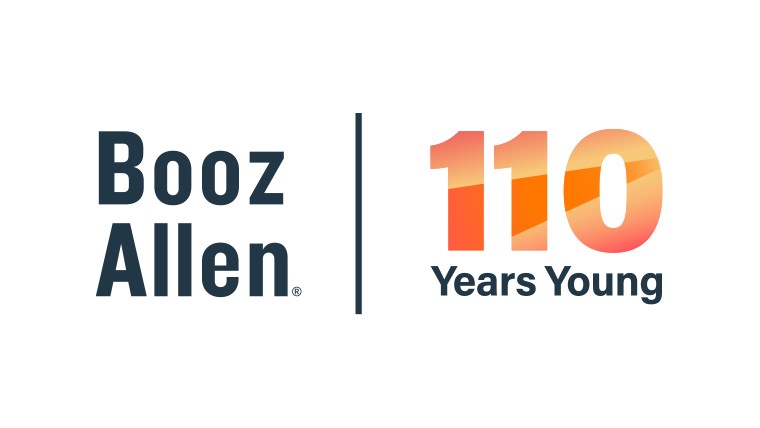
Q15. What is the worst career advice you received?
Over the years, I have received a fair amount of bad career advice. There is no need for me to pass it along to others. It is better to focus on the good, not the bad.
ATW! will make you a better leader
I hope you join me on this journey to raise the next generation of leaders. The world desperately needs more great leaders—women and men who lead confidently, clearly, and creatively. It’s time to become the leader your world needs. Let’s go All The Way!
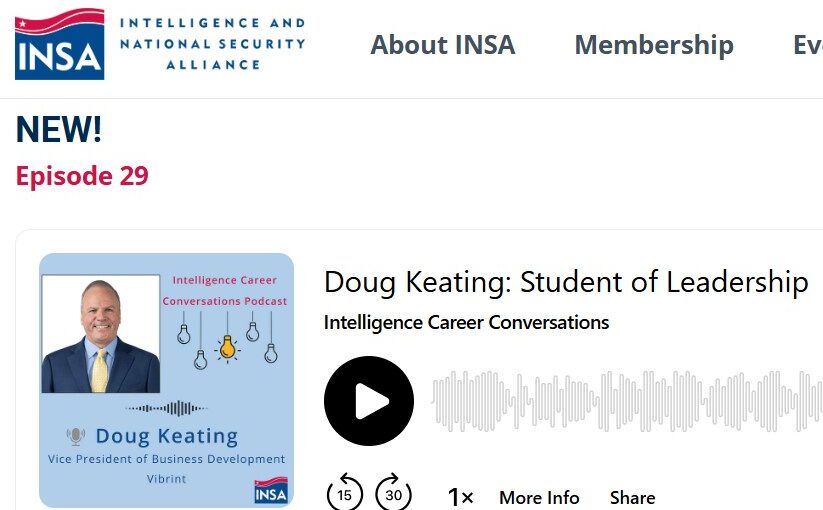
Great career insights! Your leadership lessons are full of wisdom and real-world applicability. I appreciate the honest advice—definitely lessons to keep in mind.
Glad you liked the interview. Thanks for the feedback.